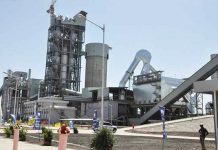
Surviving Nigeria’s Harsh Business Climate
By Fatimah Yusuf Usman,
The cost of doing business in Nigeria has never been more daunting. Like an unrelenting tide, inflation surges forward, sweeping away profit margins and leaving a trail of struggling enterprises in its wake.
The naira, once a symbol of stability, now wavers unpredictably, making long-term business planning a gamble. Fuel and energy costs continue their steep ascent, driving up production expenses and forcing many companies to make difficult choices—either pass the burden onto consumers or shut their doors altogether.
An editorial published by a national tabloid last week, painted a grim but familiar picture on the subject matter of this article: a nation whose businesses are gasping for air under the crushing weight of economic hardship.
Manufacturing firms, retailers and service providers alike find themselves caught in a relentless cycle of rising costs, dwindling revenues and shrinking competitive edges.
Poor infrastructure, erratic power supply and limited access to affordable credit further tighten the noose, making survival an uphill battle. But all hope is not lost.
To reverse this downward spiral, Nigeria must embrace a multifaceted strategy—one that strengthens local production, stabilizes the economy and creates an enabling environment for businesses to thrive.
A robust local manufacturing sector remains the bedrock of a sustainable economy. When businesses rely heavily on imports, currency fluctuations become a constant nightmare, pushing operational costs through the roof.
Encouraging domestic production through tax incentives and financial support would not only shield businesses from external shocks but also generate employment and stimulate growth.
SMEs, which make up the backbone of the economy, must be empowered with access to low-interest loans and credit facilities. Without financial lifelines, many of these enterprises will collapse under the strain of rising costs.
Currency stability is another urgent priority. The volatility of the naira has made cost predictions nearly impossible, leaving businesses at the mercy of sudden price hikes.
Sound monetary policies that curb inflation and support the local currency are critical in restoring investor confidence and reducing import expenses. Likewise, infrastructure investments—particularly in energy and transportation—can significantly lower production costs.
Imagine a Nigeria where factories run on stable electricity rather than expensive diesel generators, and where goods move seamlessly on well-paved roads instead of crumbling highways. The savings in operational costs would be enormous.
Technology and automation also present a path forward. In a world that is increasingly driven by digital solutions, Nigerian businesses must adapt or risk falling behind.
Encouraging the adoption of technology—whether in manufacturing, service delivery, or supply chain management—would streamline operations and enhance efficiency.
But businesses cannot do it alone; government policies must be tailored to reduce bureaucratic bottlenecks, simplify tax systems and provide the necessary support for digital transformation.
Then, there is the issue of labor. A well-trained workforce remains an invaluable asset to any business. Investing in vocational training and skill development programs would equip Nigerians with the expertise needed to drive innovation, boost productivity and sustain economic resilience.
A country cannot thrive if its human capital is neglected. Nigeria stands at a crossroads. The soaring cost of production threatens to cripple its business landscape, but with strategic interventions, the tide can be turned.
If policymakers, business leaders and stakeholders come together with bold and decisive actions, Nigerian businesses will not just survive—they will flourish.
Fatimah Yusuf Usman is a serving corps member at PRNigeria Centre, Abuja. She can be reached via fatimahborkono@gmail.com

































